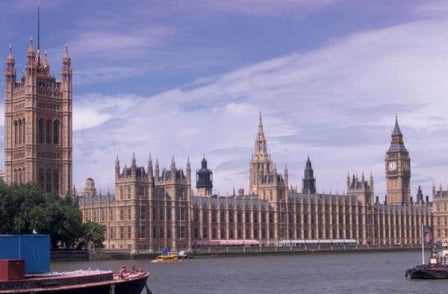
A cross-party deal on press regulation was cemented in the Commons as MPs passed measures which could see judges award punitive damages against publications which refuse to sign up to a new watchdog.
The measures, recommended by Lord Justice Leveson in his report on press standards, are intended as an incentive for publishers to co-operate with the new regulator.
Under the deal thrashed out by David Cameron, Labour leader Ed Miliband and Deputy Prime Minister Nick Clegg, the regulator will be recognised by a body established by royal charter.
With the leadership of the three main parties signed up to the plan, the exemplary damages provision was last night comfortably passed by 530 votes to 13, majority 517.
Culture Secretary Maria Miller told the Commons the exemplary damages plan, contained in amendments to the Crime and Courts Bill, was a crucial part of Lord Justice Leveson's reforms.
Together with a clause added by peers to the Enterprise and Regulatory Reform Bill which means the Royal Charter can only be altered with a two-thirds majority in both houses of Parliament, the measures represent the legislative arm of the Leveson settlement.
Miller said: "We are, I believe, striking a balance through these amendments that will present a tough new system of press regulation that equally doesn't compromise the freedom of the press and investigative journalism.
"We are all clear it is important investigative journalism and freedom of the press are given paramount importance in this process and throughout cross-party talks we have agreed a set of proposals that will create a tough new system of self regulation.
"I believe the package in front of us today provides real incentives with real effect. They are a crucial part of Lord Justice Leveson's proposals and part of the tough new regime for press regulation."
For publishers which are not part of the regulator, courts will presume the award of costs against them in the event of a court case if a complaint could have been resolved through arbitration.
The amendments define publishers as people who produce news-related material, produced by multiple authors and under editorial control.
Miller said exemptions were in place to protect private websites or hobby publications.
Shadow culture secretary Harriet Harman said she hoped newspapers would sign up to the deal, telling MPs the "ball is now in the press's court".
She said: "This is basically giving the courts an opportunity to exercise their judgment where they think that something is so outrageous that they do not think that the normal quantum of damages of what has been suffered is enough and they can therefore add to it."
Email pged@pressgazette.co.uk to point out mistakes, provide story tips or send in a letter for publication on our "Letters Page" blog
